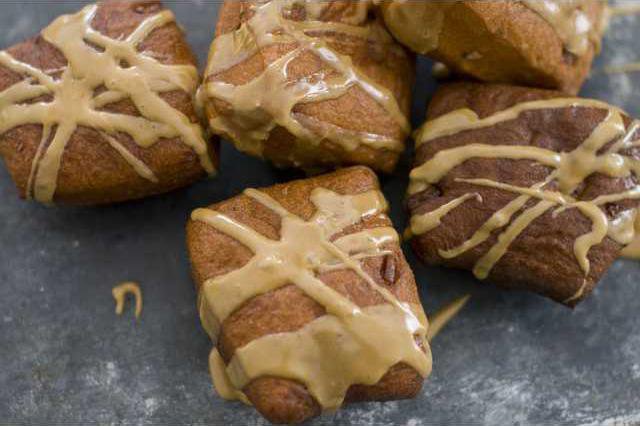Although many calendars don’t denote the holiday, foodies have already noted with delight that Tuesday is Mardi Gras. During Mardi Gras celebrations in New Orleans, which is a melting pot of cultural influences, you’re likely to encounter dishes like gumbo and jambalaya. Each contains Native American, Spanish, African and English flavors. One of New Orleans’ iconic sweets, the beignet is decidedly French. They originated in France, where the term is used to describe a wide variety of fried treats that are filled with fruit or jam. In New Orleans, beignets traditionally are served with a cup of coffee and chicory au lait. With a name that translates from French to English to read "Fat Tuesday," it’s no surprise that the food served is as important to the celebration as the parades and souvenir beads. For Mardi Gras, the last day of Carnival, many begin arriving at the parade route just after midnight when the streetcars are shut down. By dawn, the wide median where the streetcars usually roll has become a village of tents, canopies and tarps to shelter chairs, cots, ice chests, tables and grills as celebrants settle in for a long day. Soon the tantalizing scents of grilled meat, simmering gumbo and spicy jambalaya drift up and down the street. People drink beer from cans and fancy beverages from Mardi Gras cups — the large plastic glasses that are prize catches from floats. King cakes with purple, green and gold icing sweat in their plastic wrappers, while kids lick sticky fingers before asking for another slice. "I start off with a batch of sausages," said Dewayne Swanson, 46, who has been cooking at Mardi Gras for more than 20 years. "I do crawfish sausage, deer sausage and boudin. Once they start sizzling I have complete strangers coming up asking for some." By the time Swanson’s guests finish up the spicy sausages and he switches to pork chops and chicken on the grill, and gets the red beans and jambalaya on to heat, Zulu, one of the two major parades on Tuesday is rolling by. "I hand them up some food, and they hand me down some coconuts," Swanson said with a laugh, referring to the decorated coconuts that are prized throws from Zulu. Joann Lammons, a New Orleans native, and her husband Richard now travel in from Houston for Mardi Gras, packing their car with the huge quantities of food they count on to feed the people who stop by the place they set up for parades. "We start cooking and freezing it well in advance," Joann Lammons said. "We have food for the parades from Saturday on." The Lammons will be offering friends and family that stop by their parade spot chicken and andouille gumbo, red beans and rice, jambalaya, pulled pork sandwiches, and a couple of specialties from Texas — chili and tortilla soup. "I tell people in Houston who don’t really get what it’s all about that it’s just like a huge tailgate party," Lammons said. "People show up and have a drink with you, or something to eat. You might not have seen them since last Mardi Gras, but you know you’ll always see them then." Associated Press contributed to this article.
Fat Tuesday means a little French and a little fun with a bayou flare

